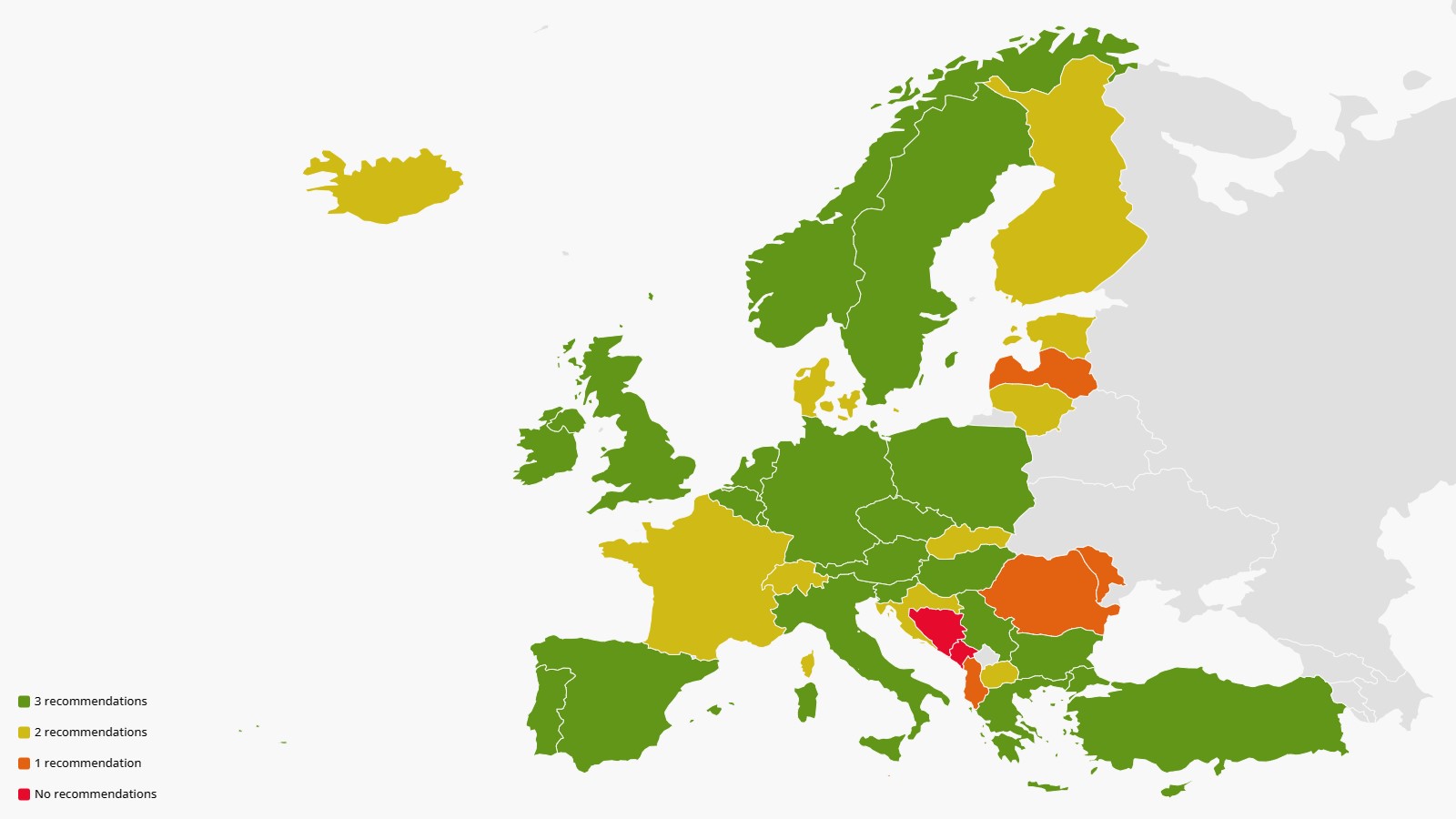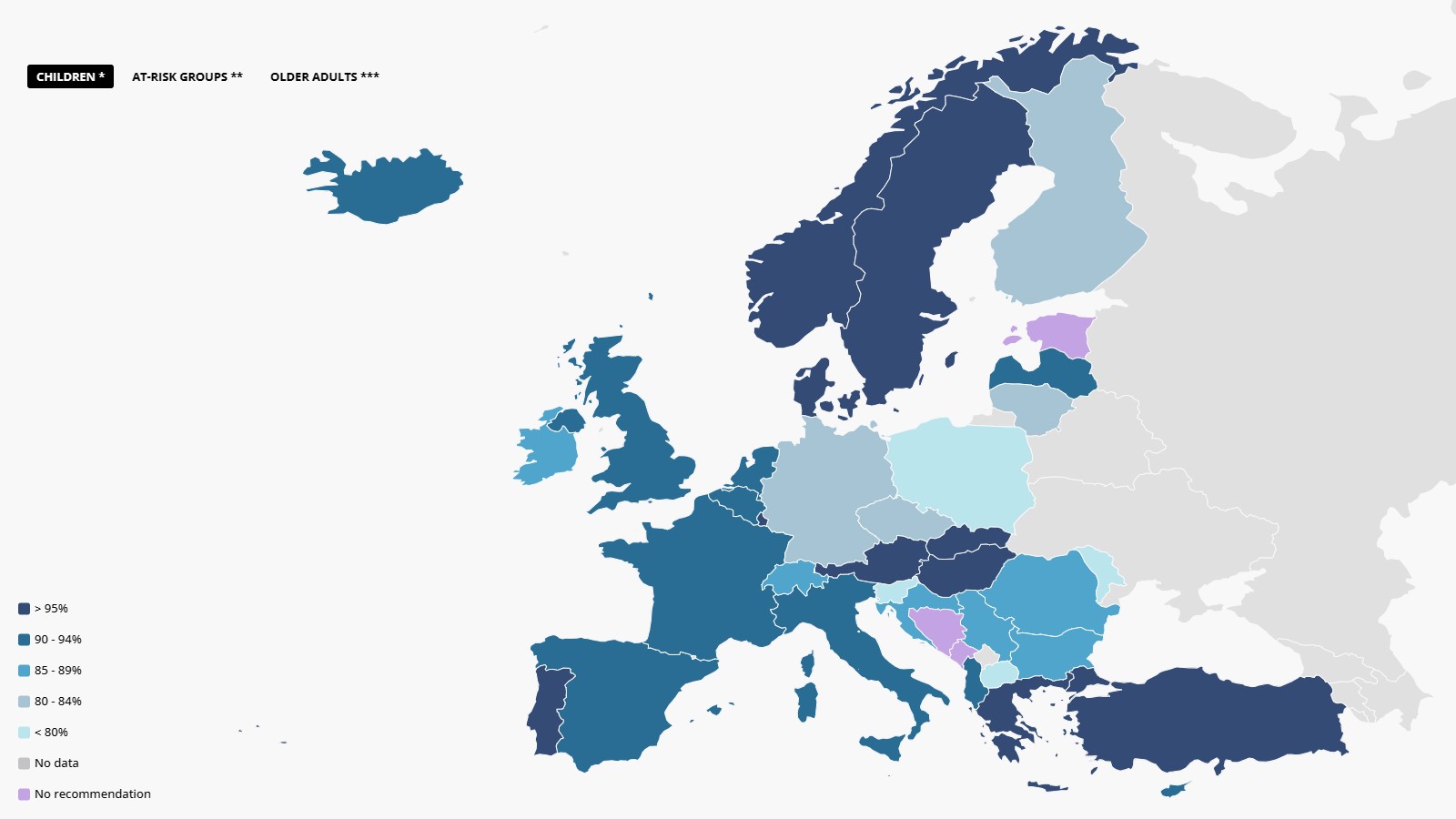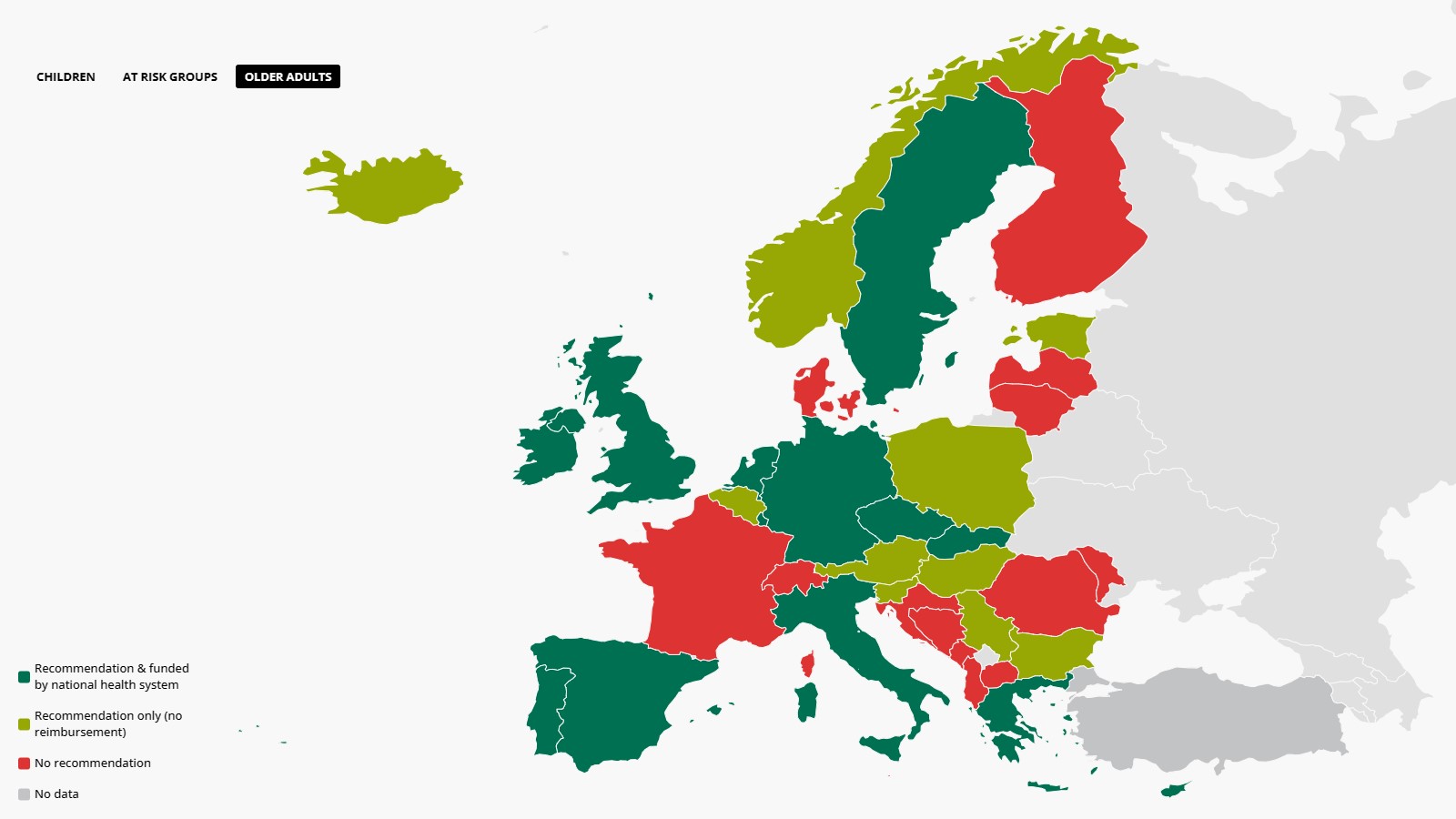A new report on vaccine coverage and vaccination policies in 42 European countries shows children are far more likely than high-risk individuals and older adults to access free pneumococcal vaccination. The study shows a patchwork of recommendations across the region, with the biggest gaps found in the east.
Key points:
- 1 in 3 countries don’t offer pneumococcal vaccination for older adults
- 1 in 4 don’t offer the vaccine to those living with an underlying medical condition
- 3 countries don’t offer pneumococcal vaccination to children (Bosnia and Herzegovina, Estonia, and Montenegro)
- Lack of data: only 26% of countries have some form of data on at-risk groups and older adults
- Accessibility issues: only 1 in 3 countries reimburse or cover the cost of vaccination for all age groups, placing the cost on individuals.
The Pneumococcal Vaccination Atlas, launched in Brussels at the end of January 2023, pulls together data from a wide range of sources, including the World Health Organisation, the European Centre for Disease Prevention & Control, and national health bodies. However, as well as providing an unprecedented overview of pneumococcal vaccination in Europe, it highlights the lack of data on key metrics, including vaccine coverage in some of those at elevated high risk.
The Atlas, published alongside the European Pneumococcal Vaccination Progress Report by the Coalition for Life-Course Immunisation (CLCI) and the International Longevity Centre UK (ILC-UK), has prompted calls for authorities to increase protection against pneumonia for people of all ages.

‘Pneumonia is no joke. Invasive pneumococcal disease [IPD] can be fatal, with over 20,000 cases and 1,000 deaths across Europe each year. Yet these can be avoided, and we have the solution at our fingertips,’ said Patrick Swain, Senior Research and Policy Officer at ILC and report author. ‘But with one in three European countries not offering pneumococcal vaccination to older adults, there are major gaps when it comes to ensuring the best form of protection.’
He said national governments should implement life-course programmes, monitor coverage, and ensure equitable access to vaccination ‘to ensure everyone is safer and healthier for longer’.
This was echoed by Dr Daphné Holt, Chair of CLCI. ‘While pneumococcal vaccination in children is strong across Europe, gaps remain in those living with chronic medical conditions and older adults,’ she said. ‘We must take a life-course approach to ensure that all people at different ages and stages receive these crucial immunisations to protect them against pneumonia and other pneumococcal-related diseases.’
What the report shows
Almost all children across the region (88.3%) have received a pneumococcal vaccination, only one in six (18.0%) people who are at particular risk of IPD and one in four (24.2%) older people are vaccinated against the disease.

Data availability varies considerably across Europe, particularly in groups not covered by the infant immunisation schedule. Of the 42 countries included in the Atlas, 98% officially reported on childhood pneumococcal vaccination, while only 26% collected some form of data for people from clinical risk groups and older adults.
Recommendations differ across Europe, with clear discrepancies between Eastern and Western Europe. Just 60% of countries recommend that all three groups receive pneumococcal vaccinations.
In addition, many adults have to pay for pneumococcal vaccination, even if it is recommended. Only 15 countries in this report (36%) reimburse or cover the cost for all three groups through their national healthcare systems.

Report recommendations
The authors make three key recommendations to improve access to, and uptake of, pneumococcal vaccination across Europe.
- National governments should adopt a life-course approach to pneumococcal vaccination by recommending it for all three groups and adopting a national pneumococcal immunisation programme
- National immunisation programmes for pneumococcal disease should be fully funded by national healthcare systems; patients should be reimbursed for any costs
- The European Centre for Disease Prevention and Control (ECDC) should require all EU/EEA member countries to report on pneumococcal vaccination across different groups every year; countries that are members of the WHO/Europe region should also collect and report on this data
See the Pneumococcal Vaccination Atlas, including individual reports on 42 countries.



